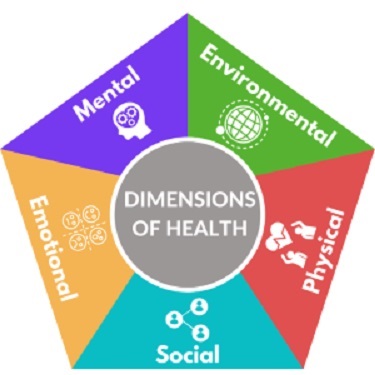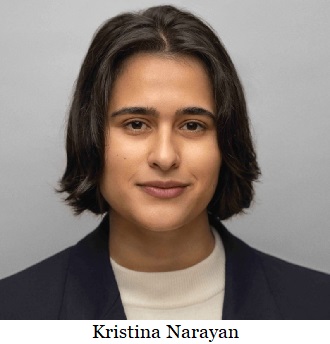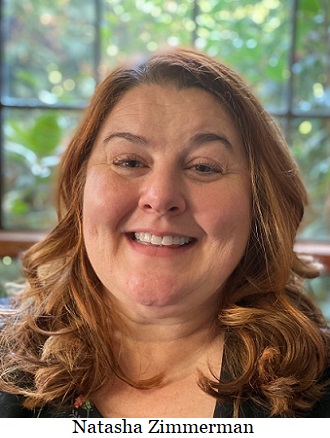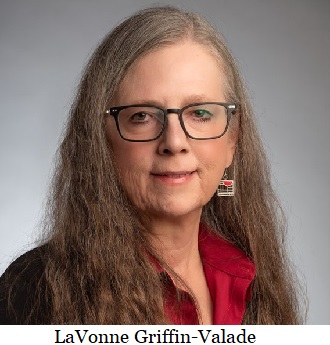
On this day, September 4, 2020, law enforcement declared an unlawful assembly and arrested 27 people after protesters marched through the streets of Portland on to a police building, where officers stood waiting outside.
 Post an Event
Post an Event
| Benton County Republicans’ Private Fundraising Event, “Bent-on Boots and Bling” with Trey Taylor |
| Friday, September 5, 2025 at 5:00 pm |
| Featuring Trey Taylor
Music Private Event
Friday, September 5, 2025 5:00-5:30 pm VIP Reception
5:30-8:00 pm Heavy Appetizers,
Auction, Concert
Red: $750 VIP Reception
Front Row Table Sponsor
White: $500 Table Sponsor
Blue: $50 per person
Limited Seating. Get Yours Now!!!
Support Local
Dress up: Bling, Cowboy, Patriotic Benton County Republican
FUNDRAISER
www.BentonGOP.org
Get your tickets today at:
https://www.bentongop.org/event-details/benton-county-republicans-fundraiser/form
About Trey:
Trey is the youngest African American Man in Country Music History. The Denver Post wrote
"It's impossible to miss his enthusiasm. With a fondness for cowboy boots, gaudy colors and dazzling jewelry, Trey Taylor could stand toe to toe with any of the Pop, Country or even Rap
contemporaries of his generation.“ |
| Trysting Tree Golf Club, 34028 NE Electric Rd., Corvallis |
Key changes and investments impacting education
During Oregon’s 2023 Legislative Session, lawmakers made several key changes and investments that will make a positive impact for Oregon students, teachers, school faculty, and parents in the upcoming school year and beyond. These include record investments in school funding and early literacy programs, initiatives to support educators and solve the substitute teacher shortage, upgrades for healthier school ventilation systems, new school safety measures, protections for students with disabilities, and more.
“By investing in our schools and students, we’re investing in Oregon’s future,†said Representative Courtney Neron (D - Wilsonville, Sherwood, King City, Tigard/Bull Mountain & Parrett Mountain), chair of the House Education Committee. “From stable school funding and support for our educator workforces to school safety, the actions we took this session are going to set our students up for success for years to come.â€
K-12 School Funding -
HB 5015 makes a historic $10.2 billion investment in the K-12 State School Fund for the 2023-2025 biennium, nearly $1 billion higher than the current service level. When paired with local property tax revenues, total resources for K-12 schools for this biennium reach an unprecedented $15.3 billion. The State School Fund is the primary funding source for the general operations of school districts and education service districts, paying for a range of needs, including teacher salaries, textbooks, school supplies, desks, and building maintenance. These 197 districts serve more than 552,000 Oregon students in K-12 schools.
Cleaner Air, Heating and Cooling in School Buildings -
HB 3031 helps Oregon schools receive federal funds to upgrade their HVAC systems, assess ventilation systems, place carbon dioxide monitors in each classroom, and submit a report on ventilation and carbon dioxide levels to a mechanical engineer for review. Districts will then implement any improvements recommended by the engineer.
Free or Reduced Cost School Meals for Low-Income Students -
HB 5014 will help cover school meal costs for more students starting this fall, responding to food insecurity across the state and filling in the gap created after federal COVID school funds expired. Students who are on Medicaid will qualify for free or reduced cost meals. Oregon is one of 12 pilot states using Medicaid funds to cover meal costs.
Early Literacy Success Initiative -
HB 3198 invests in culturally-responsive and research-aligned reading instruction in Oregon classrooms. The Initiative invests $144.3 million across three new grant programs: the Early Literacy Success School Grant, the Birth Through Five Literacy Plan, and the Early Literacy Success Community Grant. In-school funding for the initiative goes toward literacy coaching and professional development for educators, tutoring, curriculum implementation and adoption and summer learning programming. Being able to read is what makes all other learning possible. Investing in early literacy has been shown to have long-term positive impacts on state graduation rates, preventing dropouts and helping students succeed.
Strengthening Oregon’s Educator Workforce -
SB 283 addresses Oregon’s K-12 educator workforce shortage. A key part of improving student success is making sure educators have good salaries, healthy working conditions, and the resources they need to help Oregon’s children learn. The bill establishes apprenticeship and mentorship grants, boost pay for teachers and classified staff who work in special education, pay for substitute teacher training, and directs ODE to study and plan for statewide minimum salaries for education workforces.
A D V E R T I S E M E N T

A D V E R T I S E M E N T
Alyssa’s Law,
HB 5014, in memory of Alyssa Alhadeff’s loss of life to gun violence at Marjory Stoneman Douglas High School in 2017, is $2.5 million included in the K-12 State School Fund. Funds schools to install mobile-based silent panic alarm systems that when activated, will send an immediate alert to law enforcement and Emergency Medical Services when there is a safety threat at a school building. States have also used this system in instances where a student or faculty was experiencing an allergic reaction, seizure, or heart issues.
School Emergency Notifications Act -
HB 3584 directs school districts to electronically notify parents and guardians within 24 hours of students and school district employees experiencing a school emergency and keep them informed throughout the incident. The bill comes in response to the Lane Middle School shut down earlier this year that left many parents in the dark without concrete information or updates.
Abbreviated School Days -
SB 819 requires ODE to enforce the current law by prohibiting school districts from offering students with disabilities fewer hours
than non-disabled peers unless a parent provides written consent. Oregon has over 1,000 students with disabilities in shortened school day placements, denying them access to full-time school. Schools are struggling to find and afford staff needed to implement this bill, while ODE hires investigators.
ODE is currently recruiting investigators to enforce this new law and offers more than 50 hours of training for districts, schools, and families. Parents of students currently on a shortened school day schedule who want their children to attend full time should notify their school districts as soon as possible.
--Donna Bleiler| Post Date: 2023-08-31 10:11:34 | Last Update: 2023-09-16 16:25:45 |
ODE is proud to have produced equity-minded legislation
The Oregon Department of Education(ODE) release the
2023 Summary of Enacted Education Legislation listing 111 legislative bills that impact education.
The bills passed in the 2023 session with ODE’s urging that they believe will have a positive impact for the agency, school districts, educators and students.
Zoe Larmer, ODE Government Relations Director, wrote, “Our legislative mission is driven by the core belief that equitable and anti-racist policies benefit all students, and the understanding that a system that works only for some is not a system that works at all. ODE is proud to have produced equity-minded legislation and to have collaborated with many partners to continue Oregon’s journey on the path toward equity and justice.â€
The report summary picks eight bills they consider representative of their victories with the support of the Governor’s Office:
- HB 2280, which ensures the definition of consent that students learn in school will be the same definition used in school policies, aligning expectations of behavior and outcomes. What that means is the bill modifies provisions relating to sexual harassment in schools by standardizing the definition of "without consent" to mean acts performed without person's knowledge and agreement or when a person is incapacitated by drugs or alcohol, unconscious, or pressured through force, coercion, or threats. Should a student be harassed, parents are only notified “if applicable.†Applies to acts on or after July 1, 2023.
- HB 2281, requires school districts to identify one or more Civil Rights Coordinators. It passed without a Republican vote and overwhelming testimony in opposition with concerns that it is a way to silence parents in opposition to CRT by sanctioning schools. The bill requires the civil rights coordinator to monitor, coordinate, and oversee district compliance with state and federal antidiscrimination laws, oversee investigations of complaints alleging discrimination, provide guidance and respond to questions on civil rights issues, and satisfy requirements prescribed by State Board of Education. Imposes sanctions, to be established by the State Board of Education, on public elementary or secondary schools found to be in noncompliance.
- HB 3144, develops the Pacific Islander/Native Hawaiian Student Success Plan. The bill requires all statewide education plans to include strategies that provide for alignment with other statewide education plans. While this plan is the latest of many to address specific needs based on a specific minorities, reports are mixed with recommendations of providing more support to make postsecondary education feasible.
- SB 1050 passed unanimously, which implements standard for Holocaust, genocide and ethnic studies, and supports educators with professional development for the new social science standards. Effective July 1, 2023.
- HB 2275 was controversial. It requires applicants for Student Investment Account grants to take into consideration recommendations of advisory groups formed by Department of Education in relation to statewide education plans. Requires grants distributed from Student Investment Account to each site of Youth Corrections Education Program and Juvenile Detention Education Program to be equal to at least minimum amount distributed as grants to school districts. Expands authority of Department of Education to determine how to distribute moneys under statewide education plan related to students who are American Indian or Alaska Native. Grants discretion to Department of Education to determine how to distribute to specified programs appropriations made for accelerated college credit programs.
A D V E R T I S E M E N T

A D V E R T I S E M E N T
- HB 3198 establishes the Early Literacy Success Initiative, the Birth Through Five Literacy Plan, and the Early Literacy Success Community Grant Program. Debates over how to teach reading continued throughout the late 20th century, with the "balanced literacy" approach favored by Dr. Lucy Calkins at Columbia Teachers College influencing reading instruction throughout the United States. This approach arose as a compromise between phonics and whole language. Dr. Calkins recently changed her published reading curriculum to include structured phonics. To date, 30 states have adopted legislation relating to the science of reading.
- SB 215 allows the Department of Education to adjust amounts charged related to distribution of agricultural products received from United States Department of Agriculture for school food programs. Increases the number of licensed speech-language pathologists and certified speech-language pathology assistants employed in education service districts and school districts. Authorizes the Department of Education to issue subpoenas related to certain investigations, and modifies notification and privacy requires when investigation is related to sexual conduct.
- SB 1002 eliminates State School Fund distributions for facility grants. Carves out $3 million each biennium from State School Fund to be used by Department of Education in supporting school districts, education service districts and public charter schools before, during or after threat or hazard to help improve safety and security of students and staff. The opposition didn’t like using school funds when smaller districts don’t have funds to provide special needs services.
Senator Michael Dembrow (D - Portland), chair of the Senate Education Committee comments, “We made tremendous progress this year for Oregon students, teachers, faculties, and families. The legislation we delivered will make our schools safer, healthier, and more effective for every Oregonian. I’m excited for our communities to start seeing and feeling a positive difference.â€
--Donna Bleiler| Post Date: 2023-08-30 10:32:20 | Last Update: 2023-08-31 10:43:34 |
Quality health education requires age-appropriate teaching
Since June of 2022, the Oregon Department of Education (ODE), led by the statewide Health Education Panel and in collaboration with a diversity of internal and external partners, has been developing updated draft for the
2023 Oregon Health Education Standards. In September of 2023, the draft Oregon K-12 Health Education Standards will be presented to the State Board of Education for a first read.
The draft standards state that the standards were formed using the Oregon’s Student Health Survey from 6th, 8th and 11th graders asking about health and safety, mental and behavioral health, and climate and culture. They admit that survey data only tells part of the story. Data analysis often focuses on disparities and gaps. But data and statistics alone lack context and fail to capture the rich history and culture of many communities. Participatory analysis can provide community-led insight and context to better explain the whys of survey results.
That’s where you come in. ODE is requesting community participation by completing the
2023 Health Education Standards survey. All responses are anonymous and subject to public record. The survey window is from Wednesday, August 9 - September 1, 2023.
Health Education provides students with the knowledge and skills necessary to develop health literacy, so they are able to access valid information, resources and services in order to develop, maintain and promote healthy behaviors.
Health education is built on the foundation of teaching to all dimensions of the whole child. The eight main standards in health education focus on the development of knowledge and skills that students will use throughout their lifetimes – understanding health content and concepts; analyzing influences; interpersonal communication; decision-making; goal setting; self-management; and advocacy.
A D V E R T I S E M E N T

A D V E R T I S E M E N T
The draft outlines these standards:
- Wellness and Health Promotion (WHP) outlines the fundamental knowledge and skills students need to understand what social, familial and community factors influence the dimensions of health.
- Safety and First Aid (SFA) outlines the knowledge and skills students need to feel more prepared and confident to prevent, identify, and address safety and emergency situations at home, at school, and in the community.
- Substance Use, Misuse, and Abuse (SUB) outlines the knowledge and skills students need to make decisions when faced with the pressures of using, misusing and abusing alcohol, tobacco, marijuana, and other substances.
- Food, Nutrition, and Physical Activity outlines the knowledge and skills students need to understand where food comes from, what foods have high nutrient content, and how culture plays an important role in nutrition and food experiences.
- Social, Emotional, and Mental Health outlines the knowledge and skills students need to understand and express feelings, thoughts, and emotions; build healthy relationships with self and others; practice healthy decision-making skills; and support kindness, care, connection, equity, diversity, and inclusion.
- Healthy Relationships and Violence/Abuse Prevention outlines the knowledge and skills students need to develop self-awareness of personal boundaries and bodily autonomy; analyze influences in media and technology; identify characteristics of healthy and affirming interpersonal relationships.
- Growth and Development outlines the knowledge and skills students need to understand the changes that people can experience during puberty and adolescence that impact physical, social, intellectual, and emotional development; understand that sexuality is a normal and positive aspect of development; identify medically accurate, inclusive reproductive anatomy; and support students in developing positive identities and self-esteem across the lifespan.
- Sexual and Reproductive Health outlines the knowledge and skills students need to take care of their bodies and make informed decisions about their health, safety, relationships, and future. This includes decision-making around sexual behavior, pregnancy, and parenting; and the personal, relational, cultural, and historical factors that influence sexuality, sexual and reproductive health, and access to healthcare.
The last two standards have created pushback from parents when schools have allowed the instruction to go beyond age appropriateness and taken to points of illegal exposure. Quality health education requires time for students to develop and practice healthy age-appropriate behaviors.
--Donna Bleiler| Post Date: 2023-08-29 18:01:55 | Last Update: 2023-08-29 18:36:03 |
“Oregonians are fed up with the state’s attempt to implement tolling”
Oregon Representative Lori Chavez-DeRemer (OR-05)
has introduced the No Tolls on Oregon Roads Act, which would rescind federal tolling authority granted to states specifically on Interstate 5 and Interstate 205 in Oregon. As a result, the legislation would prevent the Oregon Department of Transportation (ODOT) from proceeding with any tolling projects along these two roadways – effectively blocking tolling from being implemented along these interstate highways in Oregon.
“Oregonians are understandably fed up with the state’s attempt to hastily implement tolling, and I want to give drivers peace of mind by making the current ‘pause’ permanent. By blocking tolling along I-5 and I-205, my No Tolls on Oregon Roads Act would protect our communities from traffic congestion, save families from paying a regressive tax, and support businesses by keeping transportation costs lower. As a member of the Transportation and Infrastructure Committee’s Highways and Transit Subcommittee, I’ll continue working closely with my colleagues to put a stop to this unfair interstate tax,†Chavez-DeRemer said.
The No Tolls on Oregon Roads Act prohibits the use of federal funds for tolling on I-5 and I-205 and prohibits the U.S. Department of Transportation (USDOT) from approving I-5 and I-205 tolling projects.
A D V E R T I S E M E N T

A D V E R T I S E M E N T
Full text of the bill is
available here.
Recently, Chavez-DeRemer also introduced the
Tolling Transparency Act, which would require the U.S. Department of Transportation (USDOT) to conduct an Economic Impact Study for any major tolling project and prevent the implementation of tolling until the study is complete.
She also
wrote to Federal Highway Administration (FHWA) Administrator Shailen Bhatt raising concerns that Oregon’s tolling proposal was out of compliance with federal law. Following the letter, Chavez-DeRemer and Bhatt
held a call to discuss the impact the proposal could have on Oregon communities.
--Ben Fisher| Post Date: 2023-08-29 15:54:23 | Last Update: 2023-09-16 16:26:28 |
“Oregonians deserve better representation than Paul Holvey”
The Oregon Secretary of State
has now determined that United Food and Commercial Workers Local 555 has been successful in its efforts to demand a recall election of State Representative Paul Holvey (D-Eugene). The union-backed campaign was required to submit 4,598 signatures from voters within House District 8, and was found to have 5,055 valid signatures out of more than 10,000 submitted.
The Recall Campaign (officially designated simply as RPH PAC) had been hoping to qualify in July, but was not able to collect the needed amount of signatures that quickly.
“Petitioning for a recall is an extraordinarily high bar, and we couldn’t have done it without the outpouring of support from thousands of my fellow District 8 residents who demanded accountability. For the first time in his career, Rep. Holvey will have a serious challenge at the ballot: his own record.†– Recall Sponsor Nathan Erne, a constituent of Holvey’s.
The Recall effort outlined a long list of what they say are anti-worker actions and questionable conduct by Holvey that warrant his removal, including his opposition to the union's preferred legislation.
A D V E R T I S E M E N T

A D V E R T I S E M E N T
“Oregonians deserve better representation than Paul Holvey provides; this applies especially to working Oregonians who have been left behind by Holvey and the Democratic Party’s Caucus leadership. Paul Holvey knows how to advance or kill legislation on behalf of corporations like La Mota that are owned by rich people; he’s just forgotten how to do it for regular people, like La Mota’s employees.†– Miles Eshaia, UFCW 555’s Communications Coordinator.
It is rare that labor union works against a Democrat Party legislator in general, however, Holvey himself also comes from a union background and
is still with the United Brotherhood of Carpenters and Joiners of America (UBC).
"This recall effort was launched by one special interest group and their lobbyist,"
explained Holvey. "Simply because I asked questions about a potential piece of legislation they were pushing. Asking questions is foundational to the job of being a State Representative and Chair of the Business and Labor Committee; it ensures there are no unintended consequences to our community and the people of Oregon."
If Holvey resigns or is recalled, the Lane County Democratic Party will provide the Lane County Commission a list of 3 to 5 candidates from which to select a replacement.
--Ben Fisher| Post Date: 2023-08-27 05:47:27 | Last Update: 2023-09-16 16:26:54 |
“Every person has the right to stand up for what they believe and engage in nonviolent resistance”
In an act that some are claiming demonstrates both the hypocrisy and the contempt she has for police, Tina Kotek has appointed Kristina Narayan as a health policy advisor. She is currently serving as Vice President of Public Policy at CareOregon, which according to it's
website, helps more than 500,000 Oregonians access free physical, dental, mental health care and prescription drug coverage through the Oregon Health Plan.
Narayan is well known to Governor Kotek, having served as her Chief of Staff while Kotek was House Speaker, beginning in May of 2018. Her controversy began on November 6, 2020, Narayan was
arrested for interfering with a peace officer, a class A misdemeanor.
At the time, then House Speaker Kotek issued a statement saying, “Every person -- including members of my staff -- has the right to stand up for what they believe and engage in nonviolent resistance,†she said. “Kristina’s experience is similar to what other Portlanders have experienced over the last few months. We need peace and accountability.â€
Just three months after the arrest of Narayan then State Representative Mike Nearman (R-Independence) opened the Capitol doors to members of the public gathered outside during the 2020 Session. Kotek introduced legislation,
HR 3, to have Nearman expelled from office -- the first lawmaker to be expelled in the 182 year history of Oregon.
A D V E R T I S E M E N T

A D V E R T I S E M E N T
At the time, Representative Nearman described his act as an act of civil disobedience and an expensive State Police investigation resulted in his conviction of a Misdemeanor -- similar to Narayan's alleged crime.
Reached for comment at his home near Independence, Nearman said, "I'm proud to live in a country that was founded by men who, in 1773 dressed up as Indians, boarded merchant ships and tossed tea into Boston Harbor. Governor Kotek supports nonviolent resistance, but only when done by her friends."
--Staff Reports| Post Date: 2023-08-26 19:42:13 | Last Update: 2023-09-16 16:27:22 |
Tran and Zimmerman will fill vacancies
Oregon Governor Tina Kotek
has now announced that she will appoint Thanh H. Tran to the Clackamas County Circuit Court and Natasha Zimmerman to the Marion County Circuit Court. Tran will fill the vacancy created by the retirement of Judge Thomas J. Rastetter. Zimmerman will fill the vacancy created by the retirement of Judge David E. Leith.
Kotek says that both of these appointments are effective immediately.
“These are talented individuals who have demonstrated commitment to their communities through their service,†Governor Kotek said. “I look forward to seeing them bring their meaningful legal expertise to continue to serve their communities on the Clackamas and Marion County circuit courts.â€
Tran has a civil litigation practice based in Clackamas County.
Kotek says he will be Oregon’s first Vietnamese American judge and the first Asian American judge on the Clackamas County Circuit Court. He came to the United States as a child refugee from Vietnam and earned his law degree from the University of Washington. He worked in Seattle as a criminal prosecutor and then at civil litigation firms. In 2002, he started his own law practice.
A D V E R T I S E M E N T

A D V E R T I S E M E N T
Zimmerman is a hearings referee at the Marion County Circuit Court. From 2007 to 2020, Zimmerman worked for the City of Salem, as an attorney. For the past two and a half years, Zimmerman has served as a hearings referee in Marion County, where she has presided over criminal cases and cases in the Juvenile Department, where she is currently assigned.
Zimmerman is Co-President of the Mary Leonard Chapter of the Oregon Women Lawyers, and she is active in the Marion County Bar Association and the Willamette Valley American Inns of Court. She has served as a volunteer advocate for the Center for Hope and Safety and has served on the Marion County LGBTQ Foster Youth Workgroup.
--Ben Fisher| Post Date: 2023-08-25 11:18:55 | Last Update: 2023-08-25 20:22:07 |
“I strongly urge you to consider delaying the waiver”
State Representative Anna Scharf (R-Amity) sent a
letter to Chiquita Brooks-LaSure, the Administrator for Centers for Medicare & Medicaid Services at the U.S. Department of Human Services, urging her denial of automatic voter registration to Medicare recipients in Oregon.
“The CMS has the authority to stop this, and they should until Oregon can prove the registration process is secure and will only register eligible voters,†wrote Scharf.
Representative Scharf serves on the House Rules Committee where this legislation was heard during the 2023 Legislative Session. Scharf raised many questions during the hearings, many of which were left unanswered by the Secretary of State’s Office and the Oregon Health Authority.
“During the hearing on
HB 2107, there was little discussion regarding data security with respect to sharing needed information across platforms,†Scharf wrote. “How would OHA determine if the 170,000 people were legal US Citizens prior to registering them? How would the OHA system gather that data and then tie it to the SOS office?â€
Representative Scharf highlighted Oregon’s recent history with public data breaches, most recently at the Oregon Health Authority where 1.7 million Oregon Health Plan members had their private information leaked. Scharf stated the automatic voter registration does not provide for an “opt out†option, but rather automatically shares that individual’s information with the voter registration program.
A D V E R T I S E M E N T

A D V E R T I S E M E N T
“I strongly urge you to consider delaying the waiver to the State of Oregon for this data sharing until they can prove there is no other way to register these recipients AND that they can keep any data transferred by OHA to the SOS secure from breaches,†wrote Scharf.
--Staff Reports| Post Date: 2023-08-24 19:29:30 | Last Update: 2023-09-16 16:27:55 |
Projects can include anything related to Oregon heritage
The Oregon Heritage Commission
has announced that it is now offering grants for qualified projects for the conservation, development, and interpretation of Oregon's cultural heritage. Awards typically range between $3,000 and $20,000. Projects can include anything related to Oregon heritage, and priority will be given to projects that preserve, develop or interpret threatened heritage resources or heritage resources of statewide significance. The grant application deadline is October 12, 2023.
Projects funded by the Oregon Heritage Grant may include collections preservation and access, exhibits, oral history projects, public education events, organizational archives projects, films theatrical performances, teaching traditional practices, public history interpretation, organizational planning that supports heritage resources, and more. Previously funded projects included a variety of projects around the state.
Past projects included:
- Albany Regional Museum updated their exhibits to improve preservation and increase access.
- Burns Paiute Tribe developed a history interpretation project utilizing virtual reality.
- Constructing Hope Pre-Apprenticeship Program completed oral histories of BIPOC leaders in Oregon’s early construction history.
- Evergreen Aviation & Space Museum updated interpretative signage to include more diverse history.
- The Harney County Historical Society completed a 10-year strategic plan for the museum.
- Linn County Museum partnered with Oregon Black Pioneers to incorporate African American history in the permanent exhibit.
- Cascade AIDS Project collected oral histories and made them accessible.
- Klamath County Museums digitized the Klamath republican weekly newspaper now included in the University of Oregon Digital Newspaper resource.
- Metro Historic Cemeteries researched and shared historic records that highlight the contributions of women buried in Metro's historic cemeteries to the suffrage movement, especially women of color.
- Miracle Theater Group collected multi-generational oral histories from Latino individuals in communities throughout the state.
- Oregon Black Pioneers develop a website compiling information related to Letitia Carson.
- Oregon Historical Society provided professional development for educators to meet the ethnic studies requirements.
- Oregon Jewish Museum and Center for Holocaust Education created “To Bear Witness: Extraordinary Lives†an exhibit which chronicles the lives of ten Oregonians who arrived from their homelands as refugees. Opening October 2021.
- Oregon Nikkei Endowment digitized, translated and made available online historical newspapers and Japanese American internment related FBI documents.
- Southern Oregon University developed the Rogue Valley Women’s Movement oral history project.
- The Immigrant Story presented The Immigrant Story Live.
- The Talent Historical Society developed local history curriculum in partnership with local teachers.
- The Vanport Mosaic brought together organizations and individuals from across Oregon to share ideas, challenges and plans to document how our past can inform our present and define our future.
“We hope to see projects from a variety of types of organizations that engage Oregonians in heritage, not just traditional heritage organizations,†states Katie Henry, Oregon Heritage Commission coordinator. “We encourage the documentation, preservation, and exploration of all aspects and perspectives of Oregon’s story.â€
Applications are submitted online. There is plenty of support for preparing them. “Our goal is to support organizations of all sizes all over the state in their valuable work. We provide assistance in the application process,†notes Kuri Gill, grants and outreach coordinator. Oregon Heritage grants programs staff is happy to discuss projects and review applications in advance in addition to assisting with the online application system and providing translation services on request.
A D V E R T I S E M E N T

A D V E R T I S E M E N T
Registration is required for a free online workshop, Monday, August 28, 1:00 p.m. – 2:00 p.m. which addresses the application questions and explores the online application system. A recording will be available for two weeks following the workshop with registration.
The grant directly supports the four Oregon Heritage Plan goals:
- Include More Voices: Expand the narrative of history told and preserved in the state to capture previously excluded or marginalized voices for a more complex and accurate depiction of Oregon’s historical events.
- Increase Access to Heritage: Strive to engage more community members and visitors in local heritage by increasing awareness of resources and making them available to diverse audiences and potential stakeholders.
- Promote the Value of Heritage: Share the economic, cultural, and educational value of heritage with the public and decision makers to inspire awareness, funding, and respect for long-term preservation of Oregon’s heritage.
- Pursue Best Practices: Pursue professional standards and best practices related to heritage processes, standards, and organizational management to ensure healthy, sustainable heritage organizations.
The Oregon Heritage Commission is comprised of nine people representing Oregon’s heritage and geographical diversity who have been appointed by the Governor. There are nine advisory representatives from state agencies and statewide organizations. The commission’s mission is to secure, sustain, and enhance Oregon's heritage by ensuring coordination of heritage initiatives by public and private organizations; advocacy on its behalf; education of the public about its extent and value; and promotion and celebration of its diversity.
To learn more about the grants or for translation assistance, visit the
Oregon State Historic Preservation Office website or contact Kuri Gill via email or by calling 503-986-0685.
--Ben Fisher| Post Date: 2023-08-24 08:35:43 | Last Update: 2023-08-24 18:32:46 |
Michael Wells has held the interim director role since 2022
Oregon Governor Tina Kotek has now announced that Michael Wells, interim director of the Oregon Lottery, has been appointed to lead the agency as permanent director, pending confirmation by the Oregon Senate in September. The director serves as the Secretary and Executive Officer of the Oregon Lottery Commission and is responsible for the administration and management of the agency.
"The Oregon Lottery funds critical state services like education, state parks, and veteran services,†Governor Kotek said. “It is imperative that the director is an experienced leader who will champion transparency and accountability. During his time at the Oregon Lottery, Michael has worked closely with staff, the Commission, and stakeholders to lead with the highest standards of security and integrity.â€
Michael Wells has held the interim director role at the Oregon Lottery since December 2022. Previously, he held positions in leadership at the Oregon Lottery as the Assistant Director for Security & Compliance and as a Cyber Crime Manager.
Prior to joining the Oregon Lottery, Wells spent more than 24 years working in local, state, and federal law enforcement. Most recently, he served as a special agent for more than 10 years in the organized crime section of the Oregon Department of Justice and was a member of the FBI’s Cyber Crime Task Force conducting computer intrusion investigations.
A D V E R T I S E M E N T

A D V E R T I S E M E N T
Wells has served as a police officer for various agencies, including Oregon State Police.
Wells has been a member of Cyber Oregon, Oregon’s Cybersecurity Advisory Council and is a board member of the Oregon Peace Officer Association. He has previously served on the Public Safety Fund Memorial Board, the Police Policy Committee and the Board on Public Safety Standards and Training (BPSST) Committee.
“During my tenure as interim director, I’ve had the privilege of leading an exceptional team dedicated to ensuring the Lottery's ongoing support of its beneficiaries and key programs across our state,†Interim Director Wells said. “I appreciate Governor Kotek’s trust in my leadership and look forward to leading the work of the Oregon Lottery in funding critical programs that serve Oregonians.â€
--Bruce Armstrong| Post Date: 2023-08-23 12:28:00 | Last Update: 2023-08-23 19:28:17 |
Meetings are open to everyone
There have now been
several ODOT advisory committees announced that are holding public meetings in September. There may be other committees meeting during the month as well. You can find information about these and all other advisory committee meetings on the
ODOT "Get Involved" website and by clicking on the links below. You can also check
Oregon's Public Meetings website and enter "transportation" in the search box.
Agenda details will be posted on these websites as they become available:
- Governor's Advisory Committee on DUII
, Sept. 8, 9 a.m.
- Public Transportation Advisory Committee
, Sept. 11, 1 p.m.
- Oregon Transportation Safety Committee
, Sept. 13, 9 a.m.
- Oregon Transportation Commission
, Sept. 14, 9 a.m.
- Safe Routes to School Advisory Committee
, Sept. 14, 1 p.m.
- Mobility Advisory Committee
, Sept. 14, 1 p.m.
- Community Advisory Group (Interstate Bridge)
, Sept. 14, 4 p.m.
- Regional Toll Advisory Committee
, Sept. 18, 9 a.m.
- Equity Advisory Group (Interstate Bridge)
, Sept. 18, 5:30 p.m.
- Board of Towing
, Sept. 19, 8:30 a.m.
- Rail Advisory Committee
, Sept. 19, 9 a.m.
- Statewide Toll Rulemaking Advisory Committee
, Sept. 22, 9 a.m.
- Oregon Bicycle and Pedestrian Advisory Committee
, Sept. 26, 1 p.m.
Meetings are open to everyone.
A D V E R T I S E M E N T

A D V E R T I S E M E N T
ODOT says that accommodations will be provided to people with disabilities, and materials can be provided in alternate formats. To request an accommodation, please visit the
ODOT public meetings website and sort by meeting name to find the contact information for your particular meeting; people who are deaf or hard of hearing can call statewide relay at 7-1-1.
--Ben Fisher| Post Date: 2023-08-22 17:23:45 | Last Update: 2023-08-25 20:48:05 |
“Everyone wins when campaigns play by the rules”
The Oregon Elections Division
has now announced the CLEAR initiative, a new project that aims to increase compliance with Oregon’s campaign finance laws through greater transparency and education. Secretary of State LaVonne Griffin-Valade says that the CLEAR Initiative will be an ongoing project.
“CLEAR is an important project that will increase compliance with campaign finance laws in Oregon,†said Secretary of State LaVonne Griffin-Valade. “Everyone wins when campaigns play by the rules.â€
"We’re highlighting campaign finance transparency and education on the Oregonvotes website", Griffin-Valade continued. "A new call out feature on the site will make it easier for the public to find ORESTAR and other campaign finance related information."
The Elections Division will begin publishing an online database of campaign finance violations and associated penalties. Griffin-Valade says that the database will be updated monthly and provide the public with more information about campaign finance violations.
A D V E R T I S E M E N T

A D V E R T I S E M E N T
She also says that the Division is releasing a series of training videos, live trainings and compliance documentation to support campaigns in their efforts to comply with campaign finance laws.
“The goal of CLEAR is to increase compliance with campaign finance laws, because Oregonians deserve fair elections where everyone plays by the rules,†said Secretary Griffin-Valade. “The updates announced today will help set the stage for larger investments we hope to make in the coming years, including an overhaul of ORESTAR, pending Legislative approval.â€
--Ben Fisher| Post Date: 2023-08-22 11:40:55 | Last Update: 2023-09-16 16:28:25 |
Read More Articles





























